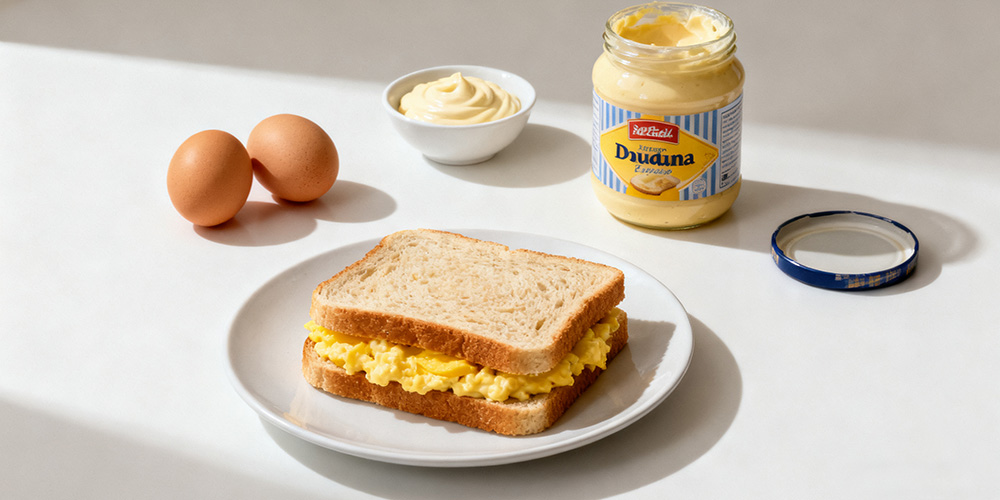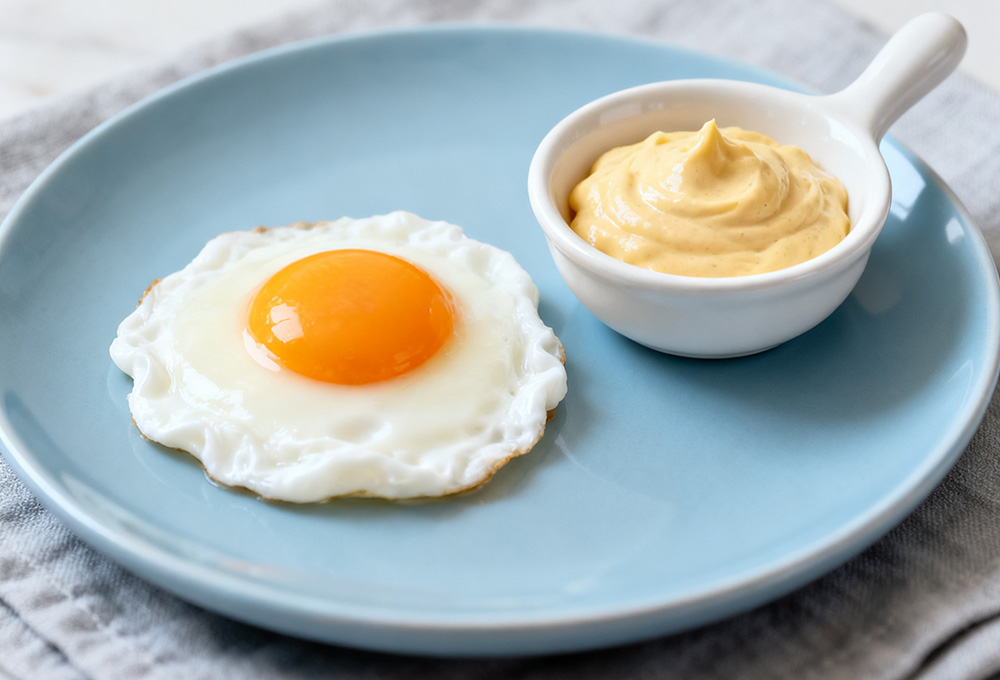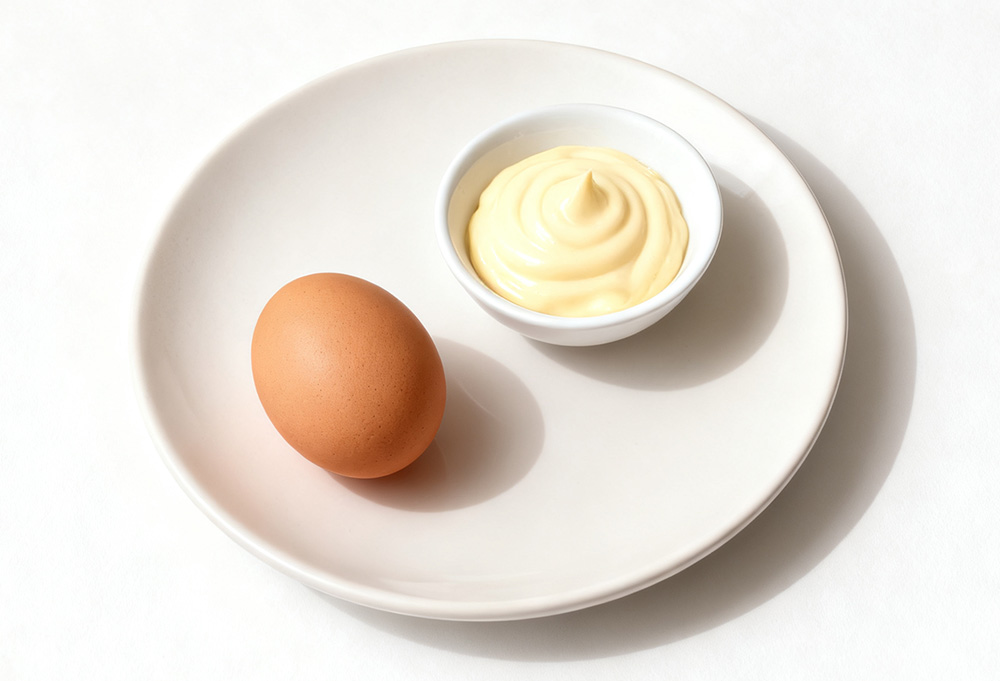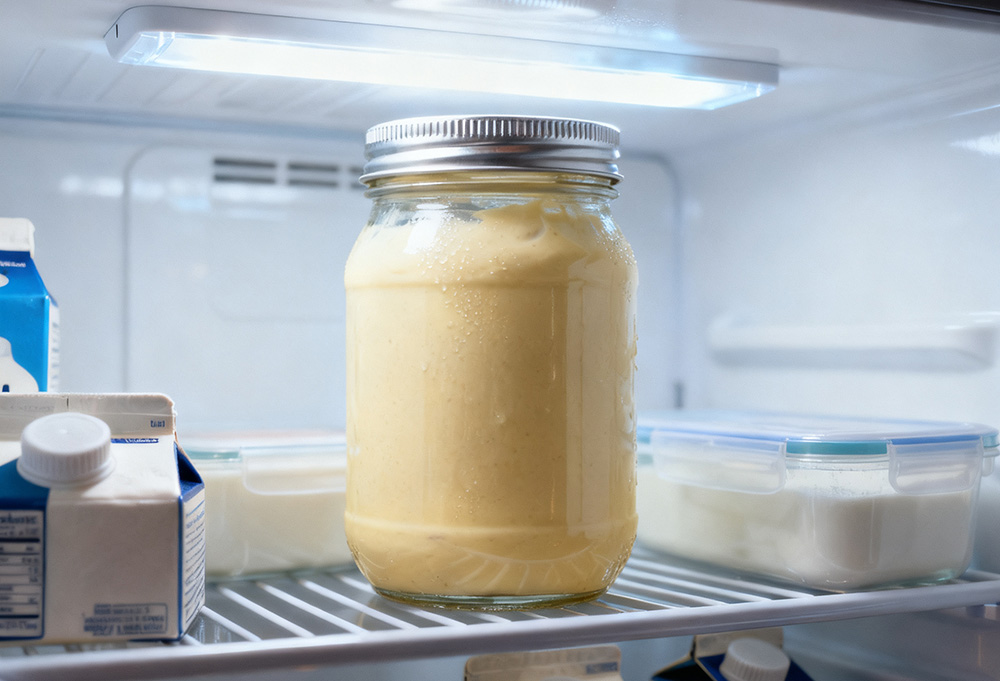How much mayonnaise equals one egg?
Many people enjoy mayonnaise. They use it on sandwiches, fries, and salads. Most people care about its taste and texture, not its nutrition. But if you watch your calories or protein, you might ask: how much mayonnaise equals one egg? This article gives you clear answers and useful tips.

How many calories are in one egg?
A large egg gives you 6–7 grams of protein. This protein is high quality. It has all the amino acids your body needs. One egg also has about 5 grams of fat, mostly in the yolk. This fat includes both saturated and unsaturated types.

Eggs provide protein and fat together. Swapping them for mayonnaise changes more than calories. It changes the protein, vitamins, and fat balance. Remember this if you replace eggs for nutrition or cooking.
How many calories are in a serving of mayonnaise?
Mayonnaise is mainly oil and egg yolk. A standard serving is one tablespoon. Full-fat mayonnaise has about 90–100 calories per tablespoon. It is very calorie-dense.
"Light" mayonnaise has fewer calories. It replaces some oil with water. Light mayo has about 35–50 calories per tablespoon. The exact calories depend on the brand.
Mayonnaise has very little protein. It has less than 1 gram per tablespoon. It provides fat, mostly from vegetable oils, and some sodium. Homemade mayo has more egg nutrients. But one tablespoon of mayo does not match an egg's nutrition.
Mayonnaise is high in calories and low in protein. Using it instead of egg changes a dish's nutrition and texture. For calories, the swap is simple. For other nutrients, it is not the same.
How much mayonnaise equals one egg?
You can compare them by calories. One large egg has about 70 calories. Full-fat mayonnaise has about 94 calories per tablespoon. So, 70 divided by 94 is about 0.74. This is roughly three-quarters of a tablespoon.

Light mayonnaise changes the amount. If light mayo has 50 calories per tablespoon, you need 1.4 tablespoons. If it has 35 calories, you need 2 tablespoons.
But matching calories is not matching nutrients. An egg gives you 6–7 grams of protein and vitamins. Mayonnaise gives almost no protein. Replacing an egg with mayo lowers protein.
In recipes, eggs act as a binder. Using mayo instead changes the texture. For salads or spreads, the calorie math works. For cooking, consider other substitutes like yogurt or mashed banana.
Mayonnaise nutrition vs egg
Eggs and mayonnaise are very different. Eggs are a whole food with protein and vitamins. Mayonnaise is a condiment made from oil and egg yolk.
Eggs are better for protein and vitamins like B12. Mayonnaise is good for fat and a creamy texture. For a balanced diet, use mayo for flavor. Do not use it to replace an egg's nutrition.
Making mayonnaise at home is easy. You need one egg yolk, one cup of neutral oil, vinegar or lemon juice, mustard, and salt.
First, put the yolk, salt, and mustard in a bowl. Whisk them together. Then, add the oil very slowly, drop by drop. Keep whisking. As it thickens, you can add the oil faster. Finally, add the vinegar or lemon juice. If it is too thick, add a little water.
You can use a blender for speed. Put the yolk and acid in the blender. Start blending and slowly add the oil until it is thick.
Remember food safety. Homemade mayo uses raw egg yolk. Use pasteurized eggs to be safe. Keep homemade mayo in the fridge. Use it within a few days.
How to store mayonnaise?
Does mayonnaise need to be refrigerated?
Yes, you should refrigerate mayonnaise after opening it. Unopened jars are shelf-stable. Opened jars can grow bacteria, so refrigeration is needed.

Homemade mayonnaise must always be refrigerated. It has raw egg and no preservatives. Use it within 3–5 days. Keep it in a sealed container.
If mayo is left out for over two hours, throw it away. In hot weather, be especially careful. Keep it in a cooler on picnics.
Does mayonnaise expire?
Yes, mayonnaise can go bad. Signs include a bad smell, color change, separation, or mold. If you see these, throw it away.
Homemade mayo spoils quickly. It lasts only 3–5 days in the fridge. Always use clean utensils. When in doubt, throw it out.
Store-bought mayo lasts longer.Factories use mayonnaise filling machine to fill mayo jars cleanly. This helps it last longer. Unopened jars are good for months. Opened jars last for months in the fridge.
If you are unsure, check the product label. Always trust your senses. Do not taste mayo that looks or smells bad.
In calories, one egg equals about 0.74 tablespoons of full-fat mayo. But they are not the same for nutrition. Eggs provide quality protein and vitamins. Mayonnaise provides mostly fat.
